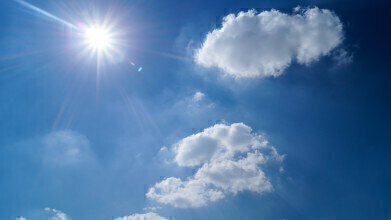Air Clean Up
Why Do Heatwaves Make Air Quality Worse?
Apr 29 2016
Though we generally welcome heatwaves as a chance to soak up some rays and work on our tans (a rare opportunity in many parts of the UK), it can also bring with it negative effects. Thanks to a marked evolution and improvement in meteorological measuring instruments, we now know that chief amongst these effects is a reduction in air quality, especially in cities, towns and walled-in areas.
Why does warmer air exacerbate air pollution? Well, there are a few key contributing factors. First and foremost, the increased power of the sun’s rays effectively works to “cook” the chemicals in the area, which combine with nitrogen oxide (NOx) to create smog consisting of ozone. Furthermore, plants are less receptive to ozone during warmer spells, which means that a greater quantity of it exists in our atmosphere during heatwaves, thus contributing to poor air quality.
Cooking the Contaminants
The emissions of fumes such as carbon dioxide (CO2), carbon monoxide (CO), methane (CH4), particulate matter 2.5 (PM2.5) and others from car engines, factories, power plants, homes and businesses lead to a gathering of a cocktail of chemicals in the air. When these chemicals are heated up by the sun’s rays, they can interact with the naturally-occurring NOx in the atmosphere to create a layer of ozone at ground level.
If inhaled by humans and animals, this ozone can be harmful to humans. Because the particles in question are so small, they can easily pass through our airwaves and even into our bloodstream, causing coronary damage and respiratory complications in healthy people and worsening the conditions of those who already suffer from such ailments.
Reduced Ozone Absorption from Plant Life
Furthermore, a 2013 study found that during periods of elevated temperature, plants are less disposed to absorb ozone from the atmosphere. This is because they close down their stomata to try and retain as much moisture as possible in their leaves, with the side effect that they take in less ozone as well. This leads to an increased amount of the toxin in the air we breathe.
As such, urban areas are particularly dangerous during heatwaves. Not only do they suffer from higher emissions levels due to the increased road traffic, they also have less vegetation to suck out these harmful fumes. Therefore, those who live in an urban environment are recommended to refrain from strenuous activity during hot periods of weather.
“Vegetation can absorb as much as 20% of the global atmospheric ozone production, so the potential impact on air quality is substantial,” explained Dr Emberson, a lecturer at the University of York. “The most vulnerable people to ozone pollution are those with existing respiratory and cardiovascular diseases. For example, ground-level ozone can lead to lung inflammation, decreased lung function and an increase in asthma attacks. That is why, during high ozone episodes, especially in urban areas, people are generally advised not to do physical activity.”
What Can Be Done?
As well as refraining from strenuous exercise and avoiding pollution hotspots during heatwaves, we can also attempt to curb our habits so that we provide less of the harmful chemicals which contribute to the ground level smog in the first place.
The Air Quality and Emissions (AQE) Show 2015 focused on ways in which we can reduce our carbon footprint and thus help to reduce global warming as a whole, which will prevent such air pollution in two ways. Firstly, it will lead to reduced emissions and chemicals in the atmosphere, a prime cause of the decreased air quality. Secondly, and more indirectly, it should lower the likelihood of such heatwaves occurring, since it was recently found that extreme weather is often indirectly caused by manmade climate change.
Events
May 05 2024 Seville, Spain
May 13 2024 Munich, Germany
May 23 2024 Beijing, China
May 23 2024 Beijing, China
Jun 10 2024 Algiers, Algeria














